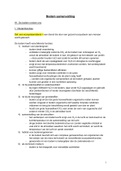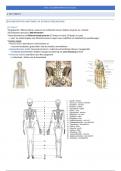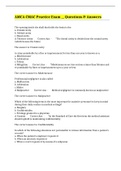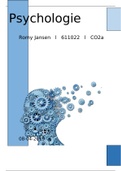Exam (elaborations)
Psychology Memory
- Module
- Cognition
- Institution
- University Of The Highlands And Islands (UHI)
Memory Psychology Notes: Description and evaluation of the Multistore Model of Memory (MSM), the Working Memory Model (WMM), 3 theories of forgetting: Interference theory, Cue-dependent Forgetting and Motivated Forgetting, overview of encoding, storage (capacity and duration) and retrieval in STM a...
[Show more]












